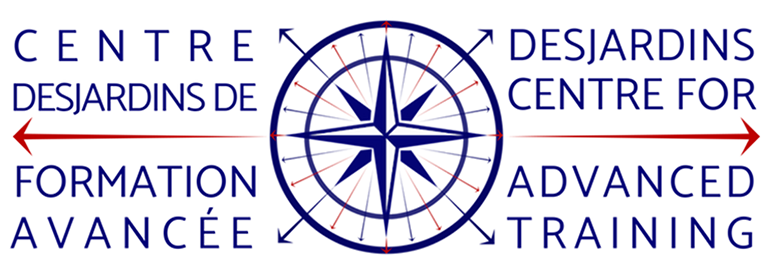
Breadcrumb
- News and Events
- News
- Content
- From PhD to Employee Forum generates insights and perspectives
null From PhD to Employee Forum generates insights and perspectives
Report shares participants’ solutions to career development challenges in the life sciences
June 1, 2020
Source: RI-MUHC. On June 13, 2019, experts and stakeholders gathered at the Research Institute of the McGill University Health Centre (RI-MUHC) to discuss career preparation for graduate students in the life sciences. More than 20 local participants and five invited speakers took part in the From PhD to Employee Forum hosted by the Desjardins Centre for Advanced Training (DCAT). Below, DCAT shares some of the insights captured in the forum report.

Data shows that PhD graduates pursue diverse careers. Recent data from Canadian universities indicates that fewer than 35% of health science PhD graduates are employed in research-intensive or tenure-stream faculty positions up to seven years after graduation. Although the overwhelming majority of PhDs pursue non-academic career paths, many are inadequately informed about non-faculty career paths and lack exposure to career options outside of academia.
The forum report centres on some common career development challenges and potential solutions identified by forum participants. It explores the importance of collecting and interpreting career development outcomes, which may include tracking career paths of alumni as well as utilizing pre-post skills assessments, usage statistics (number of participants at an event) and satisfaction surveys.
There are challenges to comparing outcomes and evaluations across centres, and participants considered more collaboration on this front to be vital. Additionally, while the focus for career centres and programs has been on evaluating numerical data (number of attendees, percent satisfaction, percent of graduates in a specific career field), forum participants discussed the utility of collecting more qualitative data on career outcomes. These career stories may prove to be more helpful for trainees, as they considered, containing richer information to mine. Provincial or federal funding mechanisms to support outcomes tracking would also encourage data sharing and the development of common taxonomies, and support the high resource burden of collecting robust data.
Two other themes are explored in detail in the report: how to tackle general skills deficiencies and unmet employer skill needs, and how to engage more trainees in career development programs.
DCAT extends a warm thank-you to forum guests and participants who also participated in developing the report. A full list of participants is available in the report. Invited guests presented the following topics:
Vanderbilt’s ASPIRE Program: Broadening Training Experiences for Biomedical Scientists
Ashley Brady, PhD, Director of Career Engagement and Strategic Partnerships in the Office of Career Development, Assistant Professor of Medical Education and Administration, Vanderbilt University School of Medicine, U.S.
Rethinking Graduate Education: Embedding professional development training into the doctoral curriculum
Helen Miliotis, PhD, Assistant Professor, Department of Physiology, University of Toronto
Drawing on peers to support career path exploration among trainees
Emily Bell, PhD, Manager of the Desjardins Centre of Advanced Training of the RI-MUHC, and Lorna MacEachern, MA, Career Advisor at Career Planning Service, McGill University
Student perspectives of STEM education in Canada
Shawn McGuirk, PhD, Science Policy Fellow at the Natural Sciences and Engineering Research Council of Canada, previously President of Science & Policy Exchange
Industrial Insights and Navigating Networks
Luciana Longo, Career Education Specialist, Faculty of Science – Graduate Students, Career and Co-op Centre, Ryerson University
RI-MUHC researchers, staff and trainees may log in to the RI-MUHC Portal to access the full report on the Desjardins Centre for Advanced Training page.